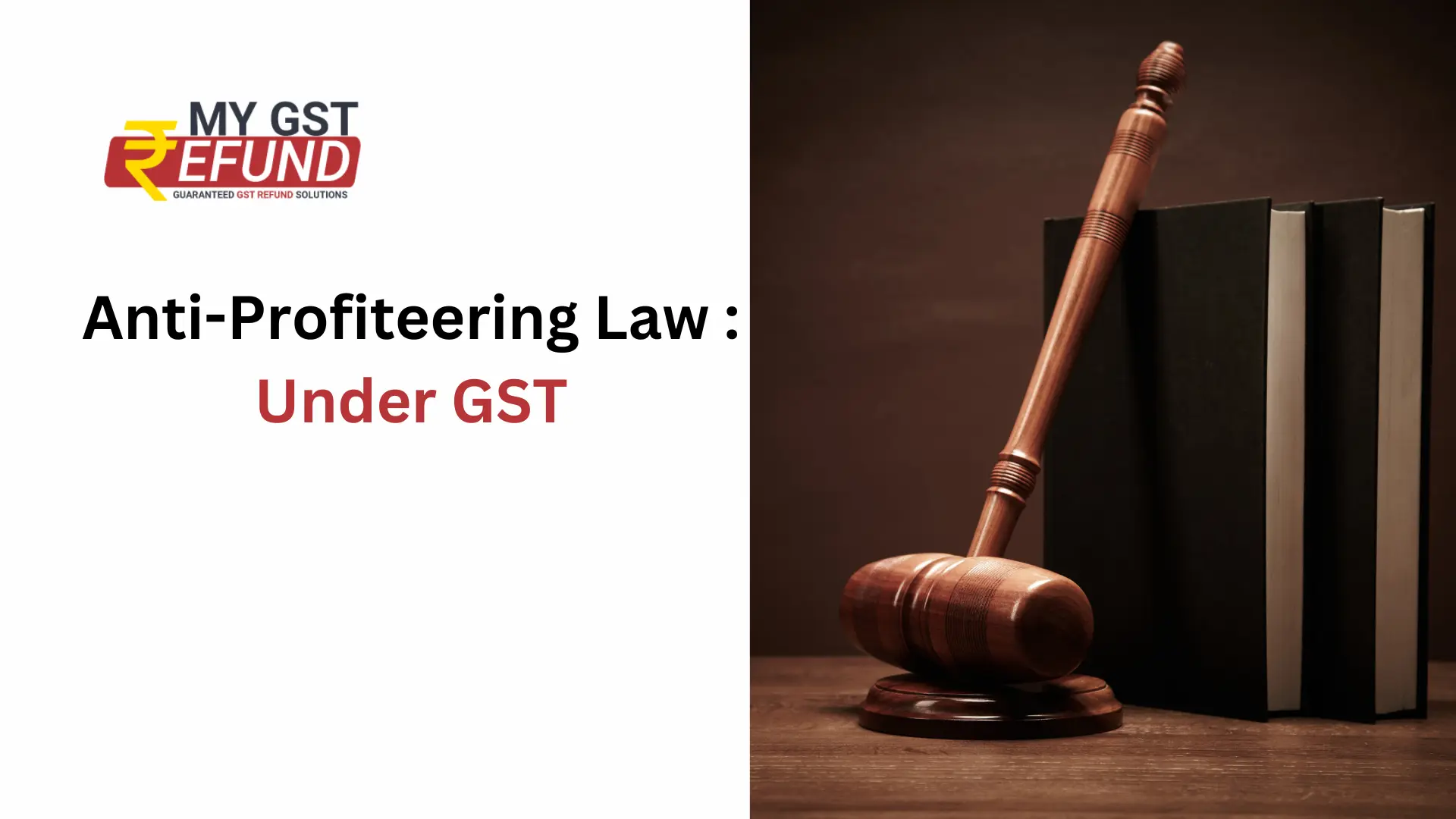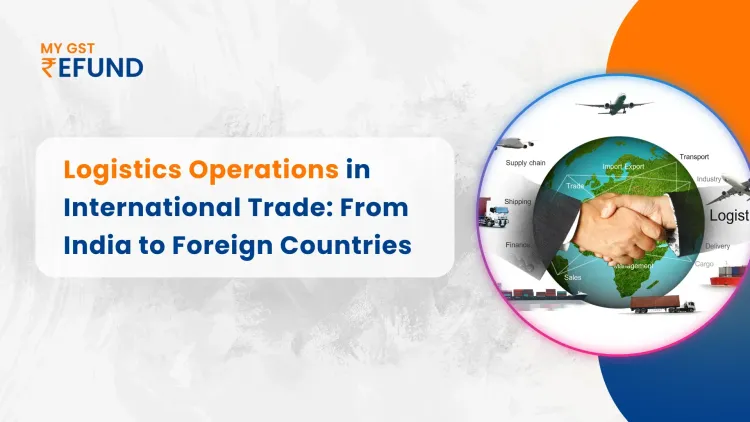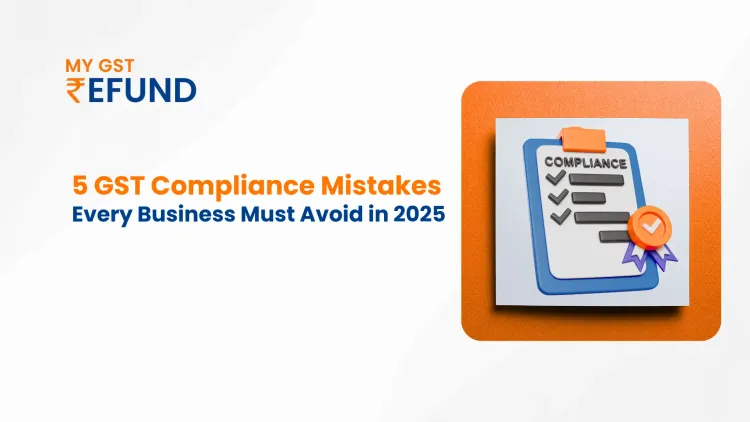The Goods and Services Tax (GST) in India, starting from 2017, is seen as a big change in how taxes are collected. It made the tax system the same across the country, getting rid of different taxes and making it easier for businesses to follow the rules. However, some people worried that businesses might not lower prices even though they were paying less tax. To fix this, the government made rules called anti-profiteering measures. These rules make businesses lower prices to give customers the benefit of the lower taxes. In this article, we'll look at these rules and how they affect businesses and customers in India.
Anti-Profiteering
Section 171 of the Central Goods and Services Tax (CGST) talks about anti-profiteering laws. It says that if taxes go down or businesses get tax credits, they should lower prices for customers. If they don't and keep prices high, it's called profiteering. The idea is to stop businesses from making extra money because of tax cuts after GST. For example, if something costs Rs. 100 with a 15% tax before GST, the price is Rs. 115. After GST, if the tax becomes 5%, the price should be Rs. 105. But if businesses raise the base price to keep the final price the same, they make more money, and customers still pay the same even though taxes are lower. The anti-profiteering rule aims to fix this by making sure customers benefit from tax cuts through lower prices.
Objectives of Anti-Profiteering Laws under GST
The anti-profiteering rules in the Goods and Services Tax (GST) were made to make sure that businesses give customers the benefits of lower taxes and tax credits. These rules are meant to protect customers and stop businesses from unfairly using the GST system. By making businesses give customers the benefits of lower taxes and tax credits, these rules aim to lower prices for things people buy, so customers can enjoy the advantages of GST.
The anti-profiteering rules in GST also aim to make sure that all businesses play fair. GST is meant to stop the "stacking" of taxes and make taxes the same all over the country. These rules stop businesses from cheating and make them compete based on quality, service, and how well they work, not just on price. This helps make business fair and encourages them to think long-term. So, the anti-profiteering rules in GST protect customers, make sure businesses compete fair, and make sure GST is used the right way.
Anti-Profiteering Measures Under GST
Businesses don't like the anti-profiteering rules in GST because they say they're hard to follow and make it cost more to do business. Critics also say that these rules don't think about the fact that businesses might have to spend more money because of GST, which might mean they need to raise prices.
Even though some people don't like them, the anti-profiteering rules have worked in making sure businesses don't unfairly make extra money because of GST. This keeps GST fair and helps customers. These rules also make prices clearer, which stops prices from going up because of GST.
Looking forward, it's likely that the anti-profiteering rules will stay important in the GST system. As businesses get used to the new tax system, these rules will stop them from cheating customers. There's a chance that these rules might get better in the future, as businesses tell how well they work and suggest ways to make them better.
Businesses have criticized the anti-profiteering rules in GST, but they've worked to stop businesses from making extra money because of GST. These rules have also made prices clearer and kept customers safe. Even though they could get better, these rules will probably stay important in the GST system in the future.
Impact of Anti-Profiteering Measures on Business
The anti-profiteering laws in GST have affected businesses in India a lot. These rules want businesses to lower prices for customers because of lower taxes and tax credits. But businesses have found it hard to follow these rules.
Businesses have a hard time understanding the anti-profiteering rules because they're complicated. They need to understand them well to follow them right. This means they have to spend more money on experts to help them understand and follow the rules.
The anti-profiteering provisions also require businesses to maintain detailed records of their input and output costs, pricing decisions, and tax calculations. This has resulted in an increased administrative burden, which has also increased the cost of compliance for businesses.
Moreover, the Anti-Profiteering Authority being set up has made businesses afraid of getting punished if they don't follow the rules. This authority can give penalties to businesses that don't give customers the benefits of lower taxes and tax credits. The penalties can be anything from just a warning to stopping the business from being registered under GST, which can be really bad for the business.
So, even though the anti-profiteering laws in GST want to keep customers safe from the bad parts of GST, they've made it hard for businesses to follow the rules. Businesses have to follow these rules while still making enough money, which makes things harder for them and costs them more money.
Anti-Profiteering Measures on Consumers
The anti-profiteering rules in GST affect consumers directly. They're made to make sure that customers get the benefits of lower taxes and tax credits, which means lower prices for things they buy. These rules also stop some businesses from getting an unfair advantage by not passing on these benefits to customers.
Anti-profiteering rules help customers by making prices clearer. According to Section 171 of the CGST Act, 2017, businesses must show how much GST they charge on the bill, making it easier for customers to see. This builds trust and helps customers make better choices when they buy things.
Anti-profiteering rules help customers by stopping prices from going up because of GST. Businesses have to give customers the benefits of lower taxes and tax credits, which means things cost less. This makes sure customers don't have to pay more because of GST.
Also, anti-profiteering rules help customers buy more. When things cost less because of these rules, customers have more money left to buy other things. This can make the economy better because when customers spend more, it means more people want to buy things, which helps the economy grow.
But, it's important to know that following anti-profiteering rules can make it cost more for businesses to follow the rules. This might mean they have to raise prices for customers. So, it's important for businesses to follow these rules to avoid getting fined and to make sure customers get the benefits of GST.
National Anti-Profiteering Authority
The Anti-Profiteering Authority's setup and authority are outlined in Rule 126 of Central Goods & Services Tax Rules, 2017. It has five members, with one being the chairman. The chairman must have held or currently hold a position equal to the Secretary to the Government of India. The other four members are technical experts who have been or currently are Commissioners of state tax or central tax, or held similar positions under old laws. The Authority's term lasts two years from when the chairman starts. Its job is to check if businesses are lowering prices as taxes go down. If businesses don't follow the rules, the Authority can punish them or cancel their registration.
Apart from the National Anti-Profiteering Authority, there are three more authorities at the state level to make sure businesses follow the anti-profiteering rules. First, there's a state-level screening committee made up of one officer from the state and central governments. Then, there's a standing committee with officers from both the State and Central Governments chosen by the GST council. Lastly, there's the Directorate General of Anti-Profiteering, which investigates for the National Anti-Profiteering Authority.
When a consumer files a complaint, the state-level screening committee looks at it first. If there's enough evidence that a business is making extra money, the case goes to the standing committee. If needed, the case is sent to the Directorate General of Anti-Profiteering for a detailed look. After investigating, the DGA sends the report to the National Anti-Profiteering Authority, which can punish the business or make them lower prices to make sure customers get the benefit of lower taxes.
Conclusion
In short, the anti-profiteering rules in GST are there to make sure customers get a fair deal when taxes are lowered. Even though they've been criticised and made things tough for businesses, they're important for keeping the market fair. These rules stop businesses from taking advantage of lower taxes and make everything clearer for everyone involved. Even though they can be a bit complicated, they're enforced by different authorities like the National Anti-Profiteering Authority to make sure everyone follows them. Overall, these measures are really important for making sure the benefits of GST are shared fairly and for building trust among consumers in the economy.
FAQs
Q.1 Why is profiteering illegal ?
Ans. It's against the law for a business to not give customers the benefits of lower GST rates. This is called illegal profiteering.
Q.2 What is called profiteering?
Ans. The act of making too much profit by selling necessary items, especially during emergencies.
Q.3 What are the powers of the National Anti-Profiteering Authority?
Ans. The Authority can decide how to check if businesses have lowered prices to pass on tax benefits to customers.
Get free access to India's first-ever Automated platform for GST Refund .
Related Posts








